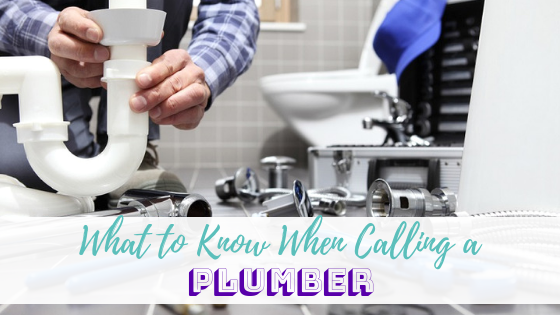Whether it’s a new apartment or a house one has been living in for months, plumbing issues are common everywhere. So, naturally during the first step one might prefer is calling a professional plumber for help with clogged or leaking pipes, drains, or sinks. It might be a serious issue, too. However, it would be better to try out the following things before calling a plumber.
Note that these are basic home remedies, and although quite easy to accomplish, with no prior expertise required, you should always exercise caution while attempting any of them. If the remedy does not work as intended, feel free to call a plumber to fix the problem.
Disclosure: Some of the links below are affiliate links. Thanks for reading & supporting Life of Creed Blog! Read full disclosure policy here.
Following are certain points to keep in mind:
Check What You Flush
What you flush down the toilet or the sink should not be anything other than waste and toilet paper. Not only will undesirable things present clogging issues, but also pose a threat to the environment. Plastic things, for example, will not decompose easily, and removing them with a plunger is difficult too. A plumber will have a harder time taking care of it as well. So, the bottom line is, avoid flushing certain things, and take care to just drop them in the trash can instead. A few moments never hurt anyone.
How’s the Faucet Pressure?
Sometimes, the faucet’s aerators get clogged with mineral deposits and dirt, and other particles flowing inside your pipes. These deposits can reduce the pressure of water flowing out of the faucets, making for clogged taps and showers. Well, one could easily fix this with minimal effort.
Remove the aerator by turning it clockwise, preferably using pliers or something to grip at it. Clean the aerator’s parts until the holes are clear, and then screw it back into place. Replacing is also a good idea. Take the old one along when looking for parts and find an identical replacement. If it seems difficult to obtain the right replacement, a plumber can always help you with that.
In the long term, a water softening system could be looked at to avoid mineral deposits for good.
Something’s Leaking?
Leaky valves usually present puddles of water. A plumber must deal with these issues on a regular basis. Leakage of water from around the faulty valve can be fixed, sometimes, by simply fastening the nut a bit with a wrench.
Make sure the water supply is turned off after the site of leakage has been located. Then, using a wrench, try to tighten the nut until it feels too tight to move. If that does not fix the issue, the nut might have to be replaced. The worn out seals might have to be applied again.
Plunger
If it is a clogged drain at fault, and a plunger is handy, use its suction power to remove unwanted materials blocking the water flow. It might be messy, but it is a pretty quick fix.
Use Hot Water
Hot boiling water, about a liter or so, can be used to dissolve small blockages or those annoying wastes that just refuse to go away. It can fix clogged toilets, and sinks, and pipes, and drains. It causes the waste materials to decompose because of the high temperature.
Be cautious when handling the hot water to avoid hurting yourself, as bathroom floors can be quite slippery. Pour the water from a height, about a few feet, so that the pressure is high enough to force the blockage to dislodge. Do not use it with plastic pipes since they might break easily. Call a plumber if you have plastic pipes, instead.
These basic fixes are easy and just might help save you that extra money.
Hi, before you go…
Don’t forget to join our Private Facebook page. The page is created to share your work, pitch your services and learn from one another.
If you enjoyed the blog we would like to have you join our email list and receive the weekly email of the latest blog post, tips, and exclusive content, you can join now!
If you found this post helpful, please PIN IT!

About the Author
Lauren Bracy
Guest Blogger


